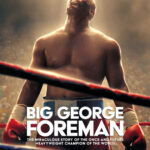THE CURRENT WAR
NOTE: This spoiler was submitted by Aurora
1880
We hear the voice of Thomas Edison (Benedict Cumberbatch) as he applies for a patent for a lightbulb. He details the design and purpose of his design. Numerous men track through the woods to meet Edison. As they approach, the field around them suddenly shines. The field is full of large lightbulbs, all glowing together. Edison has invited them there to invest in his company. But he still needs more money.
On a train to meet J.P. Morgan (Matthew Macfayden) and the President with his family — wife Mary (Tuppence Middleton) and two small children who are nicknamed Dot and Dash for Morse code, Edison speaks with his personal secretary Samuel Insull (Tom Holland) about having dinner with George Westinghouse (Michael Shannon).
Before the meeting, Edison tinkers with one of his inventions, the phonograph; then, he’s called in to see the President and Morgan. Morgan tries to persuade Edison to get into the gun business, but Edison insists none of his inventions will take another’s life. It’s barbaric. Edison shows him a map of a square mile of Manhattan that Edison wants to add electricity to. Morgan is intrigued.
On the train to dinner with Westinghouse, Edison orders Samuel to set up a Manhattan office. Just as they’re about to pull into the station, Edison changes his mind and orders the train to continue to his home because he’s tired and is done “shaking hands.” He sees Westinghouse and his wife Marguerite Westinghouse (Katherine Waterston) waiting on the platform for him.
At the Westinghouse mansion, the servants line up to greet the Edison family, but Marguerite explains that something came up, and the dinner is canceled. Westinghouse’s friend Franklin Pope (Stanley Townsend) says that Edison is unique and eccentric from when he knew him years ago. Pope gives insight to Westinghouse on how Edison operates.
Mary is upset Edison skipped the dinner, but she wants Edison to promise to build a fence in their yard. Edison records her voice on his phonograph as she speaks. Edison gets a phone call. Morgan agrees to give him $500,000. Edison is ecstatic and gets to work in the Manhattan office. His workers are there with him day and night as they plan to light up Manhattan.
At the ceremony, Edison is successful in bringing electricity to a few buildings in Manhattan. Nikolai Tesla (Nicholas Hoult) watches from the crowd.
Westinghouse complains to Pope how Edison’s way is more difficult and says it’ll never be profitable. Westinghouse proposes using transformers because Edison’s direct current system can only reach so many houses and is expensive. Westinghouse wants to build an AC system to cover more miles of houses. He plans to do a demonstration in a small town.
Edison interviews Tesla to work for Edison Electric. Tesla explains that the AC system is more efficient, but Edison says the motor in the AC system can’t handle the power. Edison hires him, and Tesla must make a minor invention every ten days and a major one every six months for $100/ month.
Mary speaks with a reporter about Edison working so close to their home yet always being so far away. She has major trouble remembering details from their honeymoon. The reporter steps in to help her out. But it’s obvious Mary isn’t well.
Mary tries to entice Edison to join her and the children on a walk, but he chooses to continue working. While on the walk, Mary collapses.
Back at home, the doctor explains to Edison Mary’s condition. Edison asks the doctor to delay the billing.
Westinghouse arrives at his proposed site. He insists Edison’s will have to build so many DC motors and bury so much copper that America will look like a checkered board with power plants. But Westinghouse is confident one AC dynamo can step up the voltage & reach as far as the eye can see. Using less copper and more electricity, Westinghouse’s AC system is cheaper. Westinghouse explains the only thing that matters here is distance, and he knows he has that advantage with AC. Pope and Westinghouse, with Marguerite, begin powering with AC.
Edison is infuriated Westinghouse is powering anything. He questions how he got the bulbs. His workers are scolded, and Edison insists Westinghouse is using a design/ method from another man who stole it from Edison. Edison plans to sue because he has the designs patented. Then he is shocked to learn Westinghouse is using AC current.
Tesla tries to convince Edison to use AC, but he stays with DC. Westinghouse and Edison begin to trash each other in the papers and to colleagues. Then Edison mentions Westinghouse’s system is lethal. The reporters write it up, and it’s all over the country. Tesla leaves Edison Electric.
Marguerite begs Westinghouse to refute Edison’s accusations, but Westinghouse refuses to engage in a fight with Edison. He knows his system is better, and that will be how he defends his name. The two men continue to battle through the papers.
Tesla starts his own company with other partners.
Edison learns Mary’s condition has worsened. He doesn’t care what her disease requires; he’ll build or invent whatever she needs.
Edison leaves to meet Morgan, leaving Mary in the doctor’s care. Morgan informs Edison that Ohio is going with Westinghouse along with the city of Columbus and others. But Edison maintains that the Westinghouse way will lead to numerous deaths. Then a telegraph arrives. Edison learns that Mary has passed away. He’s devastated at the funeral and finds comfort with his children. Edison listens to the recording he made of Mary wanting him to build a fence in their yard. He finds solace in listening to her voice, so he listens to it all night.
Samuel arrives and convinces Edison to put in a bid to light the World’s Fair in Chicago. He tells Edison that Westinghouse is planning to bid as well. Then another worker encourages Edison to provide proof that the AC method leads to death. Edison invites reporters to a horse park to demonstrate that AC is dangerous. They hook up a horse to Alternating current and electrocute the horse. But Edison calls it “Westinghouse, the horse.”
A man approaches Edison afterward and awards Edison the contract to create the first electric chair for humans in New York. The man tells Edison it would be the only way to take a life humanely. Edison is still against creating anything that can take another man’s life.
A New York man walks into the police station and confesses to killing his wife as Edison listens to his wife’s voice all night again.
Tesla has a disagreement with his new partners. They fire him. Tesla pleads that he can create a motor greater than Edison’s, but the partners don’t care.
Samuel tells Edison to make improvements to the phonograph (his recording machine) and sell them to generate funds for the company. Edison does so and begins selling them everywhere.
Westinghouse voices his frustrations to Pope. Later that night, Pope dies alone in an electrical accident at the Westinghouse work site. After Westinghouse finds it too difficult to speak at the funeral, Marguerite does the eulogy. Edison writes to the papers that as long as Westinghouse stays in business, more people will die.
JP Morgan meets with Westinghouse to help. He proposes merging Westinghouse Electric with Edison Electric. Westinghouse doesn’t like it because his workers would lose their jobs. Morgan maintains that whatever current Edison chooses to go with will be the one the new company uses. Westinghouse refuses and leaves.
Westinghouse fights back in the papers. He isn’t going away. The New York man from before convinces Edison to help create the electric chair because the man will advertise that it’s Westinghouse’s design on the chair. Edison doesn’t want any connection whatsoever to the chair, but nevertheless answers the man’s questions about creating a chair. They communicate through letters, after which the man is supposed to burn. But he keeps them in a drawer because they’re from the famous “Thomas Edison.”
Westinghouse wants to show what kind of a man Edison is and pays a man to rob the letters from the electric chair man’s office while Edison testifies in court about Alternating current and Direct current and how they affect a body in an electric chair.
Flashbacks show that when Westinghouse was a soldier in the civil war, he tricked a drunk pointing his gun at him by having the drunk lift his gun to the sky and wetting the gun powder from the the rain — thus making the weapon unusable. Westinghouse shows that he’s no fool, and no one will get the best of him.
Edison gets a call from Westinghouse. He has the letters and says he’s going to publish them in the papers. Westinghouse threatens Edison not to say one more negative thing about Westinghouse or his company.
Edison and Samuel bicker about Edison’s stubbornness. Tesla gives a speech on how alternating current can power a motor, but he has not built it yet. Westinghouse meets Tesla in his hotel room, and they agree to work together on the World’s Fair bid in Chicago and after.
Westinghouse has to make some adjustments at his companies so that his workers can keep their jobs. He ends up moving them from gas to electric, and Marguerite is proud of the man he is. Edison shows Morgan his design for the World’s fair. He pleads with Morgan to bid more for the fair. Morgan asks who Tesla is? He informs Edison that Tesla is working with Westinghouse and building a motor for him. On top of that, Westinghouse winning more cities to bring electricity to over Edison infuriates Morgan. Also, since the papers published that Edison was involved with the electric chair, the company hasn’t been great. Morgan decides to merges Edison Electric with minor electric companies, and Edison is out. Edison will only receive stock and a seat on the board. Morgan states that the name will be General Electric, which makes Edison furious.
Morgan asks Samuel to stay for a word. Later, Samuel tells Edison that Morgan will keep the name as Edison electric as long as Edison doesn’t speak negatively about the merger. (But the name eventually becomes GE.)
The day has arrived for the presentations for the World’s Fair of 1893. Edison mentors Samuel on how to make the presentation before he speaks to the council. Samuel stresses that Westinghouse’s current might strike dead innocent fairgoers. At Westinghouse’s presentation, he simply states that his current is cheaper. The council deliberates: Westinghouse is cheaper, Edison’s name alone will sell tickets. After a short consideration, the council has reached a decision. They choose Westinghouse.
Everyone at the fair loves Westinghouse’s lighting. No one dies. At the same time, they use the electric chair on the man who confessed to killing his wife. It doesn’t go well. They had to do it over and over again. It was not humane.
At breakfast, Edison and Samuel talk about his inventions and his future ideas. Edison makes peace that Westinghouse won the fair bid. Later, Edison sees Westinghouse at the fair. They speak about what it felt like for Edison to invent something great such as the light bulb. It’s was life-giving to Edison because he achieved impossible. Edison knew the World would never be the same. But he suggests his new project (the kinetograph) is so amazing people will forget his name was ever associated with electricity. (Edison eventually finds success with the kinetograph, aka the motion picture camera.)
They part with mutual respect for one another.






